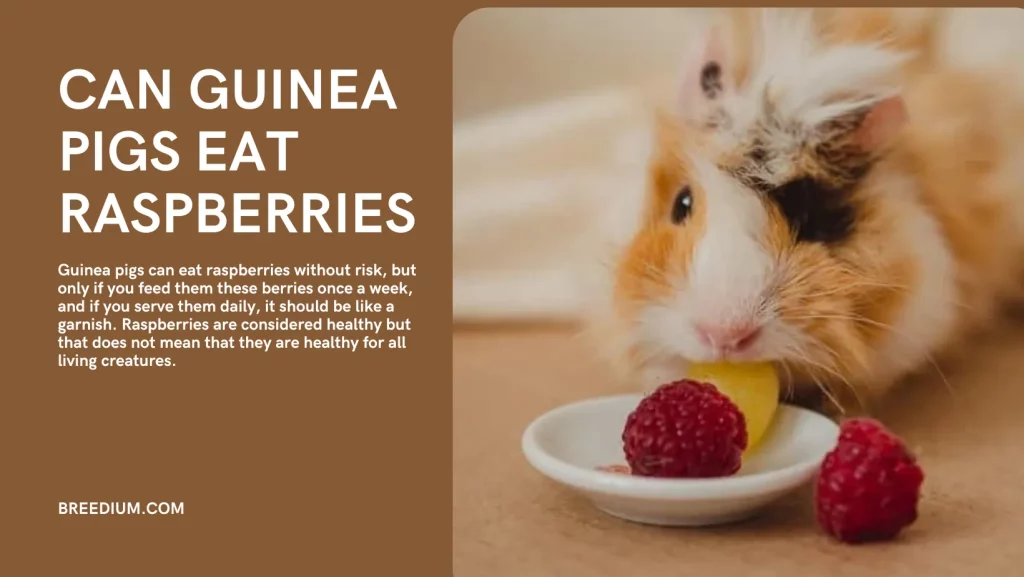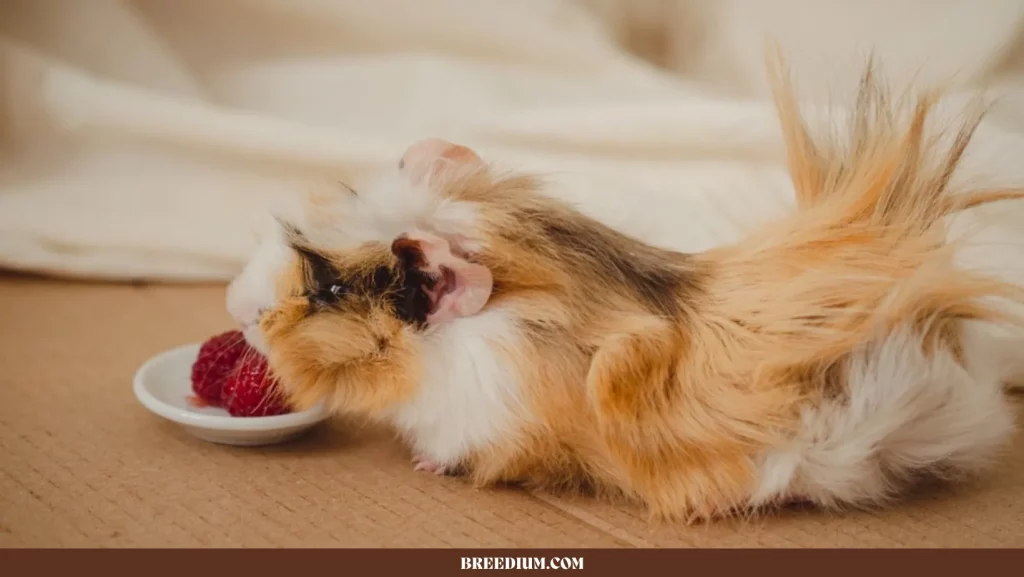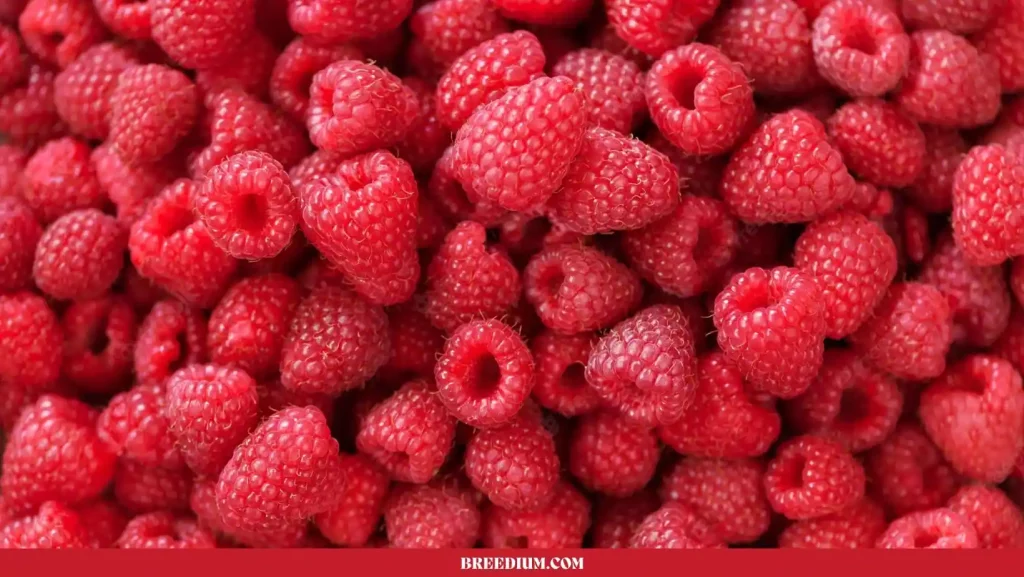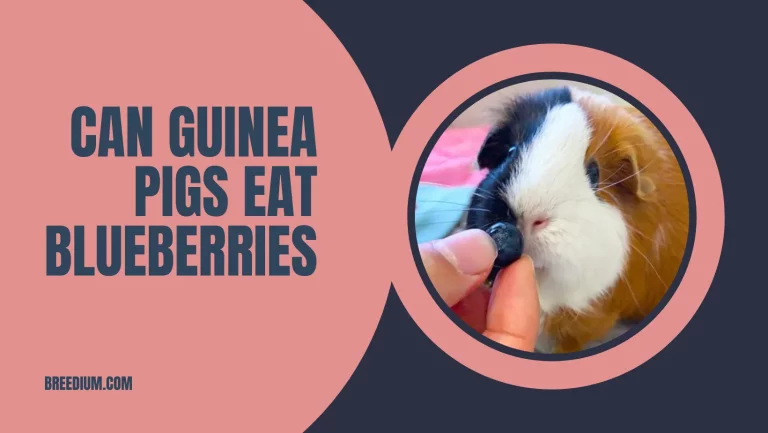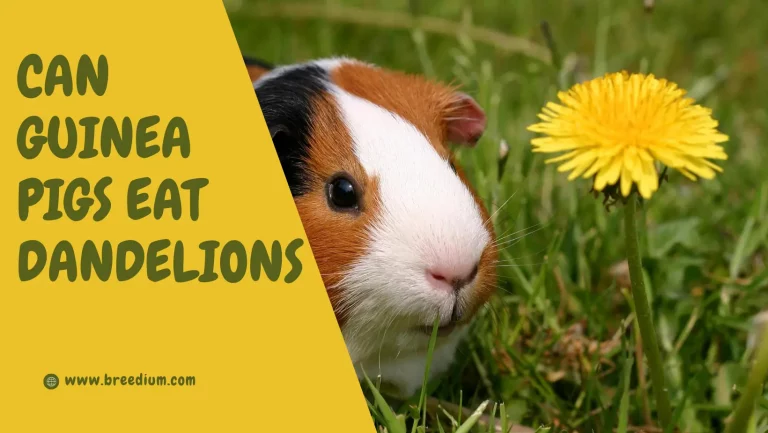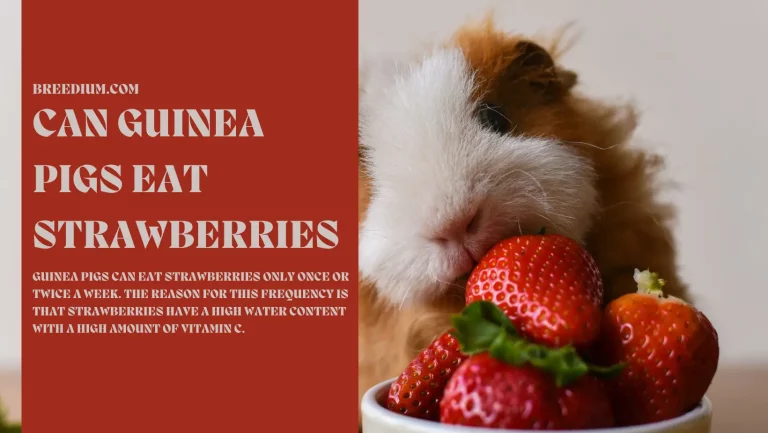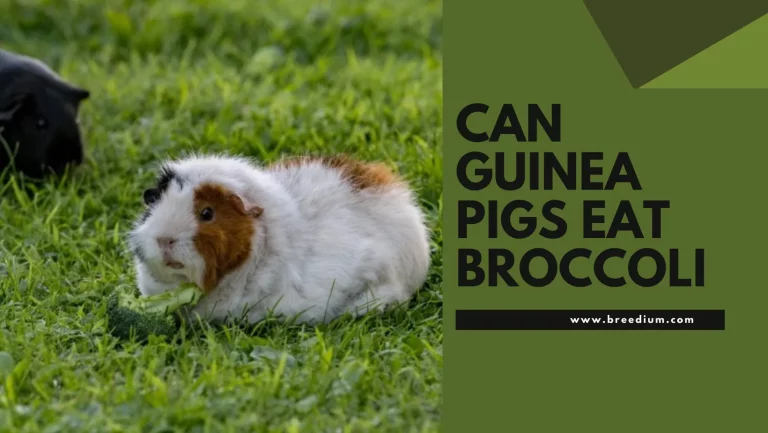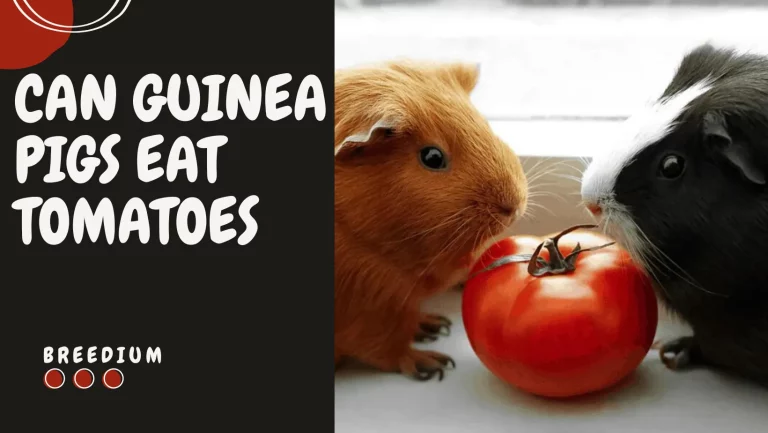Can Guinea Pigs Eat Raspberries? | Diet Safety & Benefits 2024
Guinea pigs can nibble on food all day long and if some of the foods that you serve them are delicious, they will go all out to finish them. However, all delicious items are not beneficial for them. Sometimes, some foods are great to taste but they do not offer the right nutrition. Can guinea pigs eat raspberries? Let’s find out.
Guinea pigs have to eat high roughage foods and that mostly includes hays. The lesser part of their diet includes vegetables and fruits which can fulfill their daily vitamin and mineral requirement. Pet parents must select items that offer a high nutritional value so that their pets can grow healthily. Moreover, there should be no unfavorable components of these fruits and vegetables that may put your furry little friend at risk.
Can Guinea Pigs Eat Raspberries Without Any Risk
Guinea pigs can eat raspberries without risk, but only if you feed them these berries once a week, and if you serve them daily, it should be like a garnish. Raspberries are considered healthy but that does not mean that they are healthy for all living creatures. Guinea pigs can get a few unwanted effects from these berries and therefore, the frequency and quantity of dosage must be low.
Whenever you want to understand what kind of foods will be safe for guinea pigs, understand what these creatures would require daily. Some primary food types are all it will take to ensure the safety and health of your little pet. These rodents do not require much but if that is also not provided, they can suffer badly. Also, find out Can Guinea Pigs Eat Spinach.
What’s In Raspberries For Guinea Pigs
The nutritional value of raspberries can be understood by reading through the following:
Vitamins C, E, And K: Vitamin C is an essential component of guinea pigs’ diet because they do not produce this vitamin in their bodies. It is good for strong immunity and the ability to fight infections. Vitamin E is good for hair and skin and also regulates the body’s systems. Vitamin K is an excellent source of blood health and prevents clotting.
Antioxidants: The age-reversing antioxidants are found in large quantities in raspberries. These compounds are not the safest for guinea pigs, but in a small amount, they would be acceptable.
Sugar: Raspberries have high sugar levels and that is not very favorable for many small animals. These rodents have a sensitive digestive system and it is best that you serve them low-sugar foods. We will discuss the risks of raspberries below and you will be able to understand how this property contributes to them.
Water Content: The water content of raspberries is high and that is a good thing. However, since these rodents eat a small portion of vegetables and fruits, they must be offering a lot of nutrients. If water constitutes a high amount of it, there will be even lesser nutrients to fulfill their needs.
Fiber: Fiber is an integral part of the guinea pig diet and raspberries fulfill this need well. However, pet parents must observe if all the benefits of raspberry overpower the risks or not.
Risks Of Feeding Raspberries To Guinea Pigs
The high sugar level and antioxidants can be a problem for guinea pigs. As we mentioned earlier, guinea pigs have a sensitive digestive system and the high sugar level in raspberries can make them nauseous and may even cause diarrhea.
You will see your guinea pig become irritable if they consume sugar in large quantities. Another issue is that high sugar can make guinea pigs obese and they will become more inactive, and may even stop eating if their body weight is not supported by their bones.
Antioxidants or oxalic acid can crystallize the calcium in the body and guinea pigs become ill. There are many downsides of consuming unfavorable foods in high quantities because the nutrients that are not needed in large amounts will be deposited in the body and that can hamper the regular systems. Be sure to feed your furry pets the foods that suit them most. Read Can Guinea Pigs Eat Blueberries.
How To Serve Raspberries? The Right Quantity
Since guinea pigs like to chew their food, you do not have to chop or cut raspberries. All you need to do is wash them properly so that there is no dust or unwanted chemical on the skin. Always try to get fruits and vegetables from organic plantations and all-natural fruit gardens where chemicals and fertilizers are not used so that your little rodent can enjoy raspberries in all their glory.
The maximum amount of raspberries that you can serve should be two raspberries. Do not feed them anymore as the high sugar level will interfere with their daily activities and make them anxious. The good thing about serving raspberries will be that the bite is slightly crunchy and can keep the teeth trimmed and short.
Guinea pigs have growing teeth and if they do not eat foods that help their teeth erode, these teeth will grow to a length that will make it hard for guinea pigs to eat at all. Also, find out Can Guinea Pigs Eat Strawberries.
Frequently Asked Questions
Will guinea pigs enjoy raspberries?
Yes, guinea pigs enjoy fruits that are aromatic and tasty. However, some of these fruits must not be fed in larger quantities.
Will my guinea pig die if it eats too many raspberries?
No raspberries are not lethal but they will have many issues if they eat these sweet and antioxidant-rich berries in large amounts.
Will raspberries make guinea pigs fat?
Yes, if you feed a lot of berries to your pet, they may face obesity due to high sugar levels and a sensitive digestive system that does not wash them out.
Conclusion
Can guinea pigs eat raspberries? Yes, they can but the amount will have to be small. Moreover, you will have to keep a few things in mind like washing them properly. Do not chop these berries and serve only two a week. Guinea pigs like to eat berries but you have to limit them so they do not get high sugar or antioxidants. You may also want to read Can Guinea Pigs Eat Watermelon.

I hope that you all find my work as invigorating as it is for me. I combined my passion to write, with my love for breedium and that makes it possible to share all kinds of knowledgeable things based on experiences with new bearded dragon owners!

